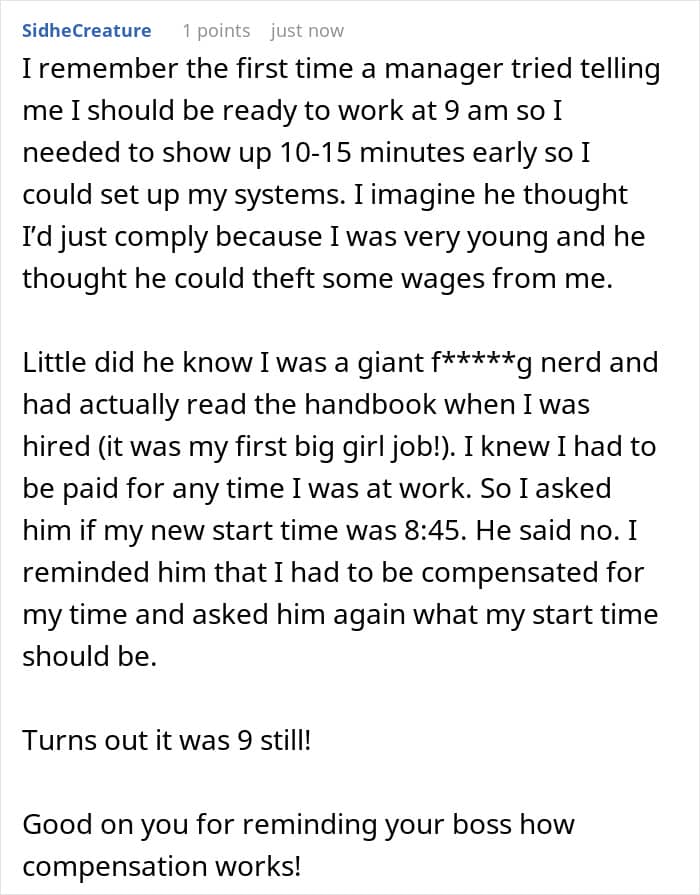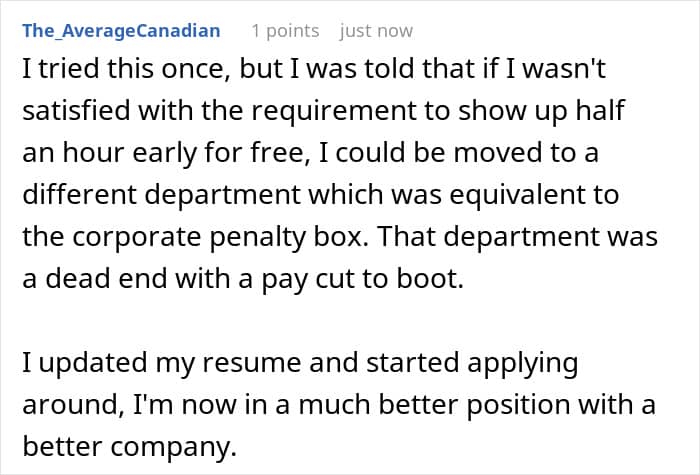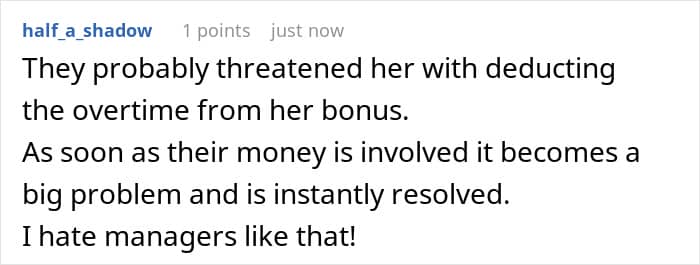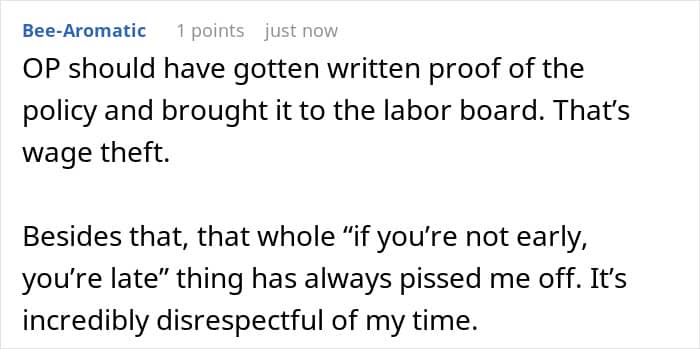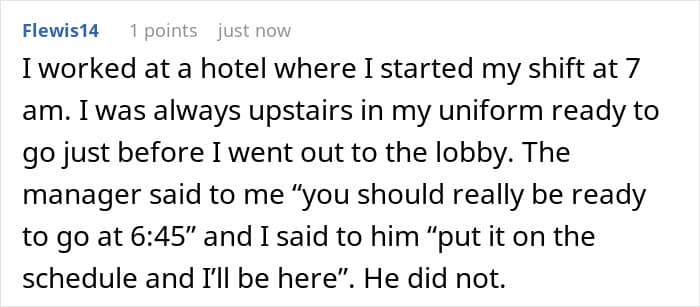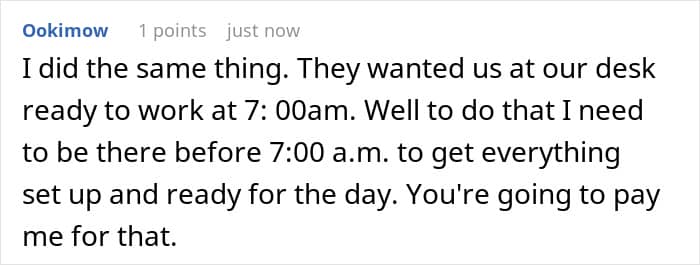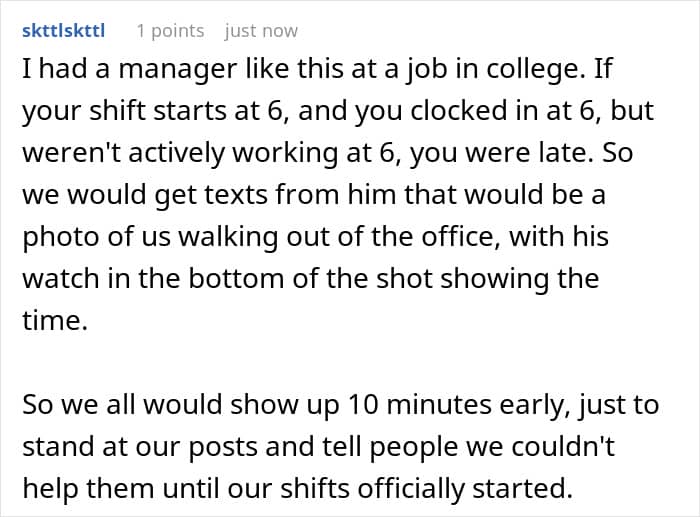There are morning people, and then there are people who treat the clock like it’s a moral compass. We’ve probably all worked with one: the boss who thinks being five minutes early makes you a better person, and being exactly on time is some form of betrayal. It’s the same type who probably thinks “fun” is arriving at the airport four hours early.
Not that we’re judging, but today’s Original Poster (OP) shared a story that is a delicious slice of petty revenge served warm and early—30 minutes early, to be exact. It’s about how they used their boss’s own “motivational” mantra against her in the best way.
More info: Reddit
RELATED:Someone once said that the best way to get rid of a policy that just doesn’t make sense is to follow it

The author’s boss had a rigid time policy, where arriving at work fifteen minutes early was the only thing acceptable
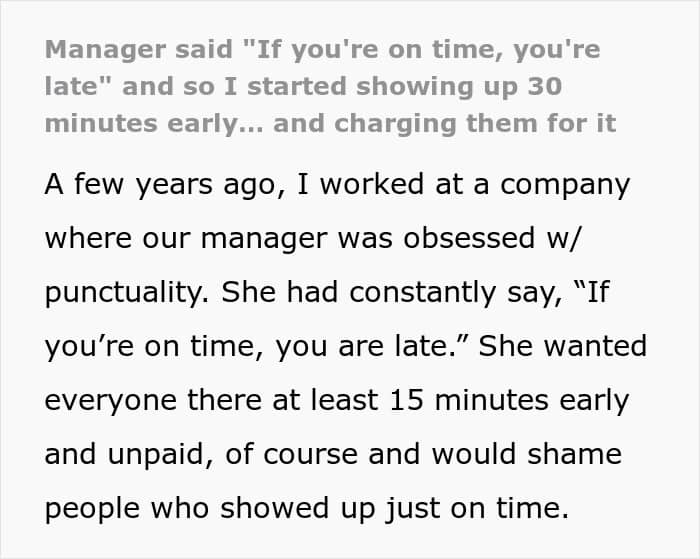


So they started arriving thirty minutes early and clocking in, forcing the company to pay for the extra time
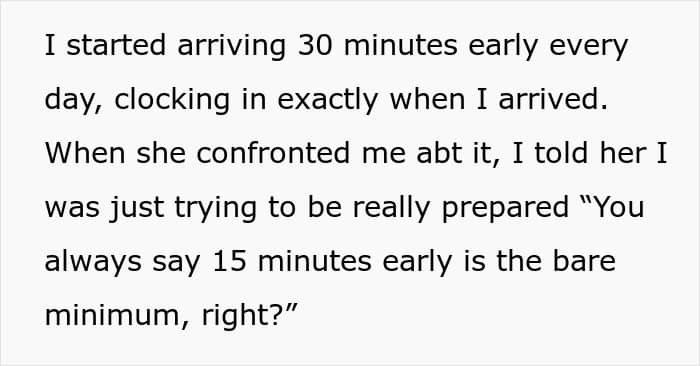
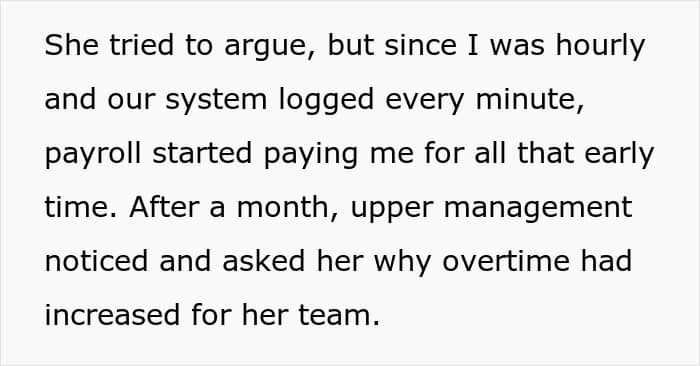

When upper management noticed the increased costs in the payroll, the manager quickly changed the policy, and being “on time” was okay again
The OP started by explaining that their manager’s preference for punctuality bordered on cult-like obsession. In fact, her favorite motto was that they were late just by being “on time.” It wasn’t a cute saying. It was a rule, and they were all expected to arrive at least 15 minutes early, except they weren’t getting paid for that time.
Instead of arguing, the OP decided to give the manager exactly what she wanted, just with a twist. They began showing up 30 minutes early every single day and immediately clocking in. Since they were hourly, every extra minute was logged and paid. And just like that, their compliance turned into quiet resistance.
A month into this new ultra-punctual routine, upper management started noticing something odd. Payroll costs were way up, and the department’s budget took a hit. Naturally, leadership turned to the manager for answers. Caught between her own policy and the bottom line, the manager had no choice but to explain the sudden surge in overtime.
Ironically, her plan to squeeze more unpaid labor out of her team had backfired gloriously, and faced with scrutiny and a potential reprimand, the manager pulled a 180. Her strict rules about early arrivals quietly vanished, and being “on time” became perfectly acceptable.
To better understand the boundaries between effective supervision and harmful control, We spoke with HR expert Dara Faronbi, who explained the difference between strong time management and toxic micromanagement.
“Good time management means setting clear expectations and empowering employees to work efficiently,” she stated before going further to explain that toxic micromanagement crosses the line when a manager excessively controls every detail, which can erode trust and damage employee autonomy.

Faronbi emphasized the importance of intent and outcome, saying that “while strong management promotes productivity and growth, micromanagement often stems from insecurity and can lead to burnout and disengagement.”
When asked about the legality and fairness of requiring hourly workers to arrive early without being paid for it, she said, “In general, companies must compensate employees for any work-related duties performed before their scheduled shift.”
She warned that expecting staff to be present early without pay “can violate labor regulations and create serious ethical issues” and that employers should make sure “all time spent on work responsibilities, including preparation, is properly accounted for and compensated.”
Finally, we explored the concept of ‘malicious compliance,’ which is when employees follow rules strictly to expose flaws. Faronbi explained, “This behavior often signals deeper dysfunction within the workplace, such as poor communication, low trust, or unresolved grievances.”
For HR, she said, “such actions should serve as a red flag prompting a closer look at company culture, leadership, and employee morale to prevent disengagement or turnover from escalating.”
Netizens insisted that the OP’s actions were both clever and justified. The most echoed sentiment was that if a company wants time, they need to pay for it, simple as that. They also applauded the tactic of following bad policies to the letter in order to expose their flaws and force change.
What do you think about what the OP did? What’s the most unreasonable workplace policy you’ve ever dealt with? We would love to know your thoughts!
Netizens applauded the author for taking that approach, insisting that employees shouldn’t be working a minute more than what they are being paid for



